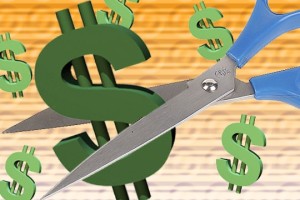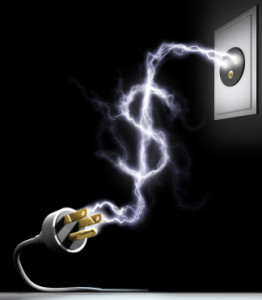4 Great Ways To Cut Down Your Household Spending
 As you’ve probably heard, the economic climate is harsh at present. Due to the rising prices of many goods, lots of families are feeling the squeeze and putting a lid on their spending. With all this going on, the last thing you might be thinking about right now as a young family is putting money aside for your children’s future – but there’s no guarantee that things will be any easier by the time your child leaves home to go to university, or search for work. No matter how bad things may seem, it’s always a good idea to at least consider putting money into a Children’s ISA.
As you’ve probably heard, the economic climate is harsh at present. Due to the rising prices of many goods, lots of families are feeling the squeeze and putting a lid on their spending. With all this going on, the last thing you might be thinking about right now as a young family is putting money aside for your children’s future – but there’s no guarantee that things will be any easier by the time your child leaves home to go to university, or search for work. No matter how bad things may seem, it’s always a good idea to at least consider putting money into a Children’s ISA.
But with an already squeezed budget, you might be asking yourself: How can it be done? How can I trim our household outgoings any more than I already have?
Here are some ways you can free up money if you’re finding it a struggle to put funds aside:
Cut Down on Unused Luxuries
We all have them: gym memberships we never use; digital channel packages we don’t watch; subscriptions to cookery or gardening magazines we never read but which seemed like a good idea at the time; the list of extraneous luxuries goes on. So, before you make a purchase or a commitment to something which requires a monthly payment plan, stop and think: Do I really need this? Can I live without it? There’s nothing the matter with indulging yourself every now and again, but if you’re going to spend money on a hobby, make sure it’s worthwhile. Remember that this is money you could be putting to better use elsewhere.
Be Thrifty With Your Utilities
You might think that switching off the lights in the rooms you’re not in, and not leaving the TV on standby overnight might not make much of a difference – but it all adds up. Being clever with your energy use will not only help to reduce your carbon footprint but will also reap you rewards when you receive your next utility bill – and in turn free up more money to put into your savings.
Eat In More
We all deserve a nice meal out every now and then, especially after a tough week. But it can be easy to cave in to temptation and let this become a regular fixture. Having a meal in a restaurant can seem like such an appetising prospect that we’re often blinded to the cost of it – which doesn’t hit us until we’ve got the check after a round of desserts. If you find yourself eating out regularly, this is a cost you can easily cut out. Treat yourself to a nice meal by all means – but remember that taking out and eating at home, or even cooking a special meal yourself instead of eating out regularly will almost always be cheaper.
Take Advantage of Deals
In your household, a holiday might be a non-negotiable fixture of your year – and understandably so. We all need to take time out from our busy lifestyles every now and then. But if you’re looking to save money, it pays to seek out deals and offers and get in there early. If you’re booking a summer holiday, try and plan it in January or even before if you can, and the chances are there’ll be a host of early bird price deals on offer.














